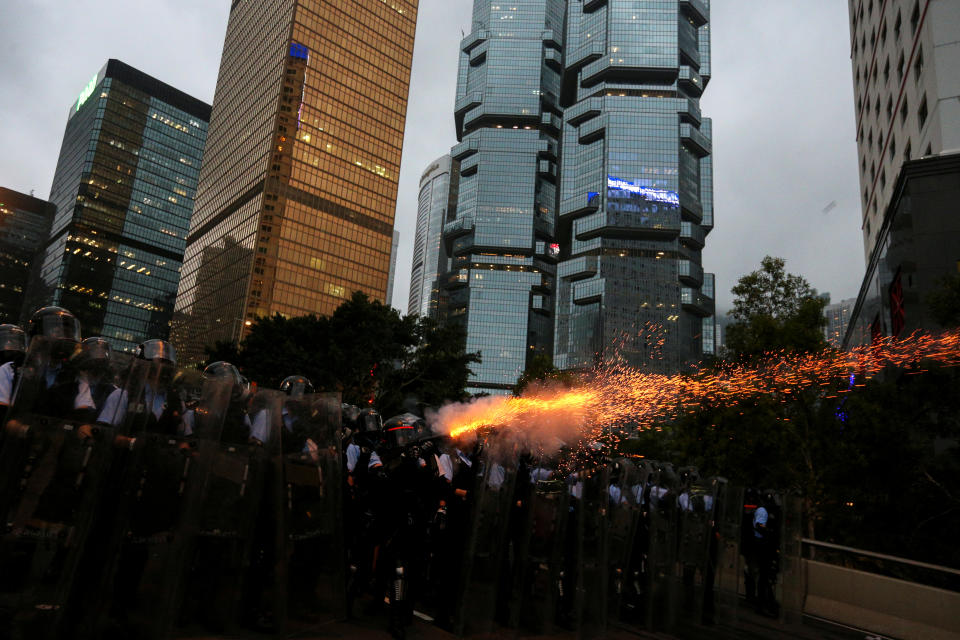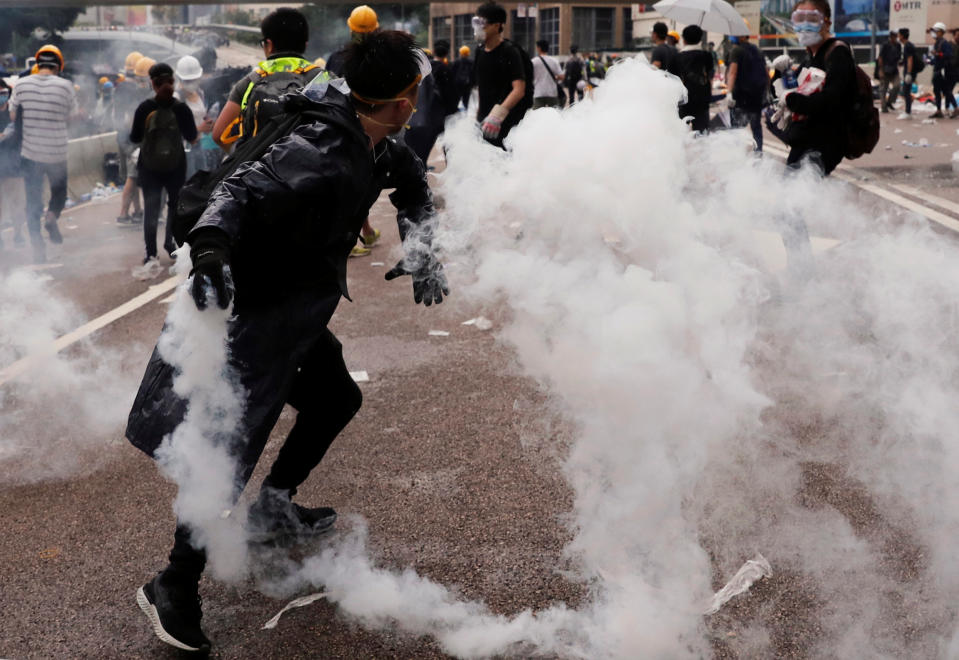Kyle Bass: Hong Kong's political turmoil occurs atop a 'financial time bomb'
Noted macro investor J. Kyle Bass, the CIO of Hayman Capital Management, says the "world needs to pay attention" to what's happening in Hong Kong.
This week, protests in Hong Kong over controversial extradition legislation turned violent. In short, the bill would make Hong Kong send fugitives to jurisdictions with which it doesn't have rendition agreements. These countries include mainland China.
"I think, unfortunately, it takes a million to 1.5 million people to march in the streets of Hong Kong to get the world's attention," the hedge fund manager told Yahoo Finance in the video above.
Bass, who gained notoriety for accurately betting against the U.S. subprime crisis in 2008, argues that Hong Kong "sits atop one of the largest financial time bombs in history." In an investor letter sent in April, Bass detailed his investment thesis and why he believes the Hong Kong Dollar will break its peg from the U.S. Dollar.
While Hong Kong is a fraction of the size of China, its banking system is one of the most levered in the world at almost 900% of GDP, he notes.

“[You] have one of the most levered economies in the world encountering both financial difficulties and now political difficulties that are going to make the financial difficulties basically be put into Checkmate.”
‘Hong Kong Exit’
Bass believes that if the extradition law were to pass (it only needs a simple majority), the event would be more impactful than Brexit.
"This is basically Hong Kong Exit," Bass says.
Presently, the U.S. treats Hong Kong as its own sovereign nation as long as they're deemed to be sufficiently autonomous. In other words, Hong Kong must maintain autonomy in its judiciary, economy, and the legislative process.
"[This] is a clear infringement of their judiciary process, i.e., making a mockery out of the Hong Kong rule of law," Bass says.
If the law passes, the autonomy of Hong Kong will come into question by the U.S.
"[That] means that the U.S. is going to treat Hong Kong as China i.e., no more most favored nation trading status. We will impose tariffs, and when you look at Hong Kong's trade as a percentage of its GDP, it's enormous. So if all of a sudden a free trade zone becomes impeded by the U.S. treating them as China, it literally changes the calculus," he says.

Bass believes that "without a doubt," Hong Kong's status as a financial center would be in jeopardy if the bill passes. He also argues that the wealthy will leave the territory in a "mass exodus."
"There are 85,000 Americans that live in a city of 7.5 million, and if you're an American investment banker or British investment banker, or a CEO, you're not going to subject yourself and your family to the arbitrary and probably politicized allegations of the Chinese government. You're going to move, and you're probably going to move to Singapore, or you move to somewhere else that actually has a rule of law, and that's the key here.
Bass says it would only take a small percentage of the people in Hong Kong to move to create run on the bank, causing the financial system to collapse and the real estate market to get decimated.
Julia La Roche is a finance reporter at Yahoo Finance. Follow her on Twitter.
Follow Yahoo Finance on Twitter, Facebook, Instagram, Flipboard, SmartNews, LinkedIn, YouTube, and reddit.

 Yahoo Finance
Yahoo Finance 
